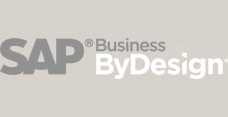How to Choose the Right Small Business Software to Double Your Business
02 Jul 2013 | by NatalieSmall business software solutions are designed to save time and money. They provide automated solutions that will streamline processes, reduce operating costs, and simplify daily tasks. In today’s competitive marketplace, every business needs a comprehensive business software solution that will increase their employees’ productivity and improve the company’s profitability by providing timely and accurate information to the entire team – in the office or via mobile.
What’s the right software for my business?
Every business is different, and unfortunately there is not one specific small business software solution that is guaranteed to fit your business. The choice of small business software will depend on the size of your company, the industry you work in, and the features that are needed to run your business effectively.
Although I can’t say for sure which software you should choose, this article will cover the different elements that you should consider when you are choosing between various vendors of small business management software. This will help you make a more informed decision when going to market for a new small business software solution.
Tips for Choosing the Right Small Business Software
Newer is Better!
New technological advancements and innovative tools have made today’s small business software even more efficient and powerful. Small businesses are missing out on exciting new capabilities if their current software system is more than a few years old. Make sure you consider newer versions of small business software – giving you the competitive edge through recent advancements in technology.
Cloud, mobility, analytics, in-memory computing – make sure that you are able to take advantage of these great improvements in technology. Make sure to check that the small business software that you choose for your business is not only a “newer” application but also offers regular updates and upgrades.
Ask Around!
Referrals and advice from professionals can be incredibly helpful when you are making a major investment to switch your small business software. Start the process by asking similar companies which products they use and what they like or dislike about the solution.
Once you have a few ideas of potential solutions, visit each software vendor’s Website to reference testimonials and feature lists. If you don’t see any referrals, e-mail the company and ask if they have any customers you can call for a reference.
Make it Mobile!
Mobility will increase productivity by allowing you and your employees to access important information and reports whenever the need arises. This will also give your sales team the ability to access live information while they are working with clients outside the office. A salesperson’s ability to connect to the latest price list, stock information and reporting while they are traveling could be the difference between making a sale and losing a sale.
Cloud or On-premise
One of the most popular new trends is cloud-based computing because it is convenient and flexible. Whether or not to go cloud or on-premise will depend on your company’s requirements and circumstances – there is no right or wrong answer to the Cloud Vs On-premise question. When you are choosing the right small business software to double your business, make sure to look for a solution that is accessible from anywhere – mobility is important. A software vendor that is committed to cloud or on-premise (your choice – depending on your circumstances) should get onto your shortlist.
Configuration is Critical!
Most modern software solutions can be tailored to suit your company’s specific needs. Create a list of the services and features your business needs and then look for the most affordable product that incorporates all of the items on your list. Be careful to check whether the features you need are standard (require configuration) or will require development. This will be important for budgeting.
How much should I spend on new software?
The amount you spend on software will depend on a number of factors – user licenses, location of your offices, business process requirements, internal IT capability, reporting requirements and more. Keep in mind that having more efficient software will save your business valuable time and money, so it will be worth the investment to invest more upfront to purchase newer, well branded software that not only covers your current requirements but will cater for your planned growth into new markets, new geographies and new opportunities.
How can all of this double my business?
A complete small business software solution allows you to react faster to potential leads, gives you updated product information, client information, production scheduling, and delivery dates whenever and wherever opportunity strikes.
Modern software makes it easier to reference past information, so customer care representatives can resolve problems and keep your current customers happy. This will increases productivity and reduce operating costs, which results in higher profits and more available funds for new marketing efforts. Imagine the decisions you can make if all required information is available in real time – from product marketing, order, purchasing, delivery, manufacturing and financials.
Small Business Software Checklist
Choosing the right small business software doesn’t need to be complicated. Make sure you have a checklist of what you need the software to do for your business. Thanks to the vast selection of small business software on the market, it won’t be too difficult to find a solution that encompasses everything you need and want. Keep in mind that you should choose a current / new age solution, ask for referrals, and make sure the solution has mobility and the ability to configure functions to better suit your business.
The right small business software will cut costs, improve efficiency, and help you double your business.








Leave a comment